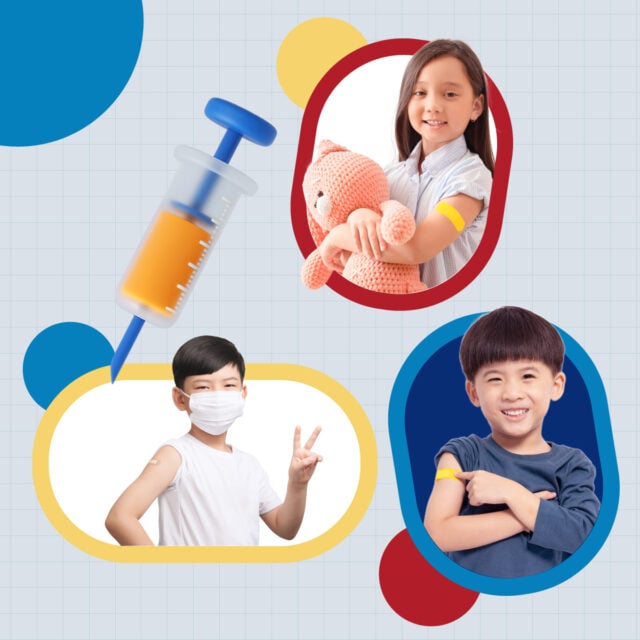Transition from childhood to adolescence is normal; however, if physiological changes occur earlier than expected, such as girls developing breasts before the age of 8 or menstruating before the age of 9, along with a rapid growth history, or boys having enlarged testicles before the age of 9, possibly accompanied by underarm hair, mustache, or body odor, it may signal early puberty due to excessive sex hormones. This could lead to short stature in adulthood and impact the child’s mental health. Parents and caregivers should pay careful attention to address and correct the problem quickly, ensuring the child grows appropriately for their age, with proper development and potential for a happy life.
Early Puberty
Early puberty or the condition when a child matures faster than normal (Precocious Puberty) is found in both girls and boys, being more common in girls, approximately 8 – 20 times more. Parents and guardians need to be vigilant as there might be hidden abnormalities.
Causes and Factors
Although the exact causes of early puberty are not clear, it is mostly due to
- Genetics
If the parents entered puberty early, such as the father’s voice breaking early or the mother menstruating early, the child might also enter puberty early.
- Environment
- Nutritional condition, strong and healthy bodies, such as in obese children – which has become more common due to unhealthy eating habits like preferring crispy, fried, greasy, high-fat foods, and fast food – tends to enter puberty earlier than normal.
- Exposure to substances or food contaminated with hormones, especially synthetic estrogens or substances that act like estrogen.
- Pathology
- Pathologies in the brain, such as tumors, past oxygen deprivation, infections, or radiation exposure, can stimulate the pituitary gland to produce sex hormones.
- Pathologies in the sex glands, such as ovarian cysts in girls, can lead to increased sex hormone production.
***However, 90% of early-puberty girls tend to have no identifiable cause, whereas the other 10% do have pathologies. In contrast, boys with these symptoms often have pathological conditions in 90% of the cases; hence, boys require further examination in every case.
Warning Signs
Physical changes that indicate the onset of early puberty include
For boys
- Enlargement of testicles and penis
- Development of pubic and underarm hair
- Acne, oily face, body odor, and voice breaking
- Rapid increase in height
For girls
- Breast development
- Development of pubic and underarm hair
- Acne, oily face, body odor
- Widening of hips
- Discharge and menstruation
- Rapid increase in height
Impacts of Early Puberty
Leads to both physical and mental issues as follows
Physical aspects
- Children with higher than normal levels of sex hormones grow faster than their peers. Sex hormones cause bones to grow quickly and mature early, stopping growth. Consequently, the period for growth during childhood is shorter than in normal children, resulting in being shorter as adults.
Mental aspects
- In girls, this group will have the external physique of a teenager while still having the mentality of a child, causing a mismatch between physical and mental maturity that could lead to easy manipulation. Moreover, the child might feel different from their peers, leading to teasing and social withdrawal. Some might have issues managing menstruation, making them reluctant to attend school.
- In boys, because male sex hormones are higher than normal, it leads to aggressive behavior, intense emotions, and sexual feelings.
Diagnosis
To diagnose early puberty, if you suspect a child is experiencing early puberty, seek immediate physical examination from a pediatric endocrinologist. Besides physical examination and growth assessment, the doctor will diagnose according to the following steps:
- Bone age assessment by performing an X-ray on the left wrist to determine if the bone age is ahead of the actual age, which affects the final adult height.
- Blood tests to measure hormone levels by conducting a GnRH Stimulation Test to measure the level of sex hormones in the body.
Prevention and Treatment
The easiest way to prevent the risk of early puberty is to control the child’s weight to standard guidelines. Importantly, ensure that children eat according to proper nutritional standards and exercise regularly for healthy development appropriate to their age.
Proactive Handling
If a child is in the condition of early puberty, what parents and guardians should do include:
- Inform them about what is happening, explain truthfully, strictly no lying.
- Verify information and provide correct knowledge.
- If treatment is needed, explain the consequences of delay.
- Regularly provide appropriate sex education to understand bodily changes.
“Parents should closely care to ensure the child grows appropriately for their age and maximize their life potential.”











